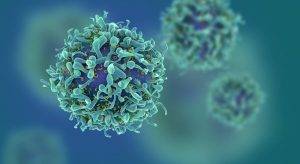Cancer is a disease in which some of the body’s cells grow in an uncontrolled fashion and spread to other parts of the body.
In 2018, there were 17.0 million new cancer cases and 9.5 million cancer deaths worldwide. It is important to mention that many of the most commonly diagnosed cancers have ten-year survival of 50% or more. Approximately 39.5% of men and women will be diagnosed with cancer at some point during their lifetimes. Other than active medical treatment, a good lifestyle can also play a decisive part in patients’ recovery and life expectancy. This article will bring you 4 important pieces of lifestyle advice for cancer patients.

Regular Exercise
Regular physical activity is one of the most important and easiest things you can do for your health. Health benefits include:
- Maintain blood lipid profile
- Reduce the risk of cardiovascular disease
- Reduce the risk of diabetes
- Help reduce abdominal fat and overall body weight
- Strengthen the body’s muscles and bone
- Improve brain health
Forms of exercise depend on your personal preference and capability. Consult your doctor for the most appropriate forms of exercise that can benefit your condition. Overall, we should aim for no less than 150 minutes of exercise a week with 30 minutes a day, 5 days a week.
Healthy Diet
A healthy diet helps you manage cancer side effects, recover quicker and prevent other comorbidities. Here are our tips for a healthy diet:
- Low salt, low sugar: diet with low salt and sugar level help reduce the risk of kidney damage, metabolic syndrome and diabetes. In saying so, avoid processed or pre-packed food, which is usually high in salt and sugar.
- High fibre: high-fibre diet help with our digestion. Examples include whole grains, beans, peas, lentils, nuts, and seeds.
- Include omega-3 and monounsaturated fats in your daily diet: they help reduce the risk of cardiovascular diseases and provide a source of healthy fat. Examples include salmon, tuna, olive oil etc.
- Avoid high-calorie, low-nutrient foods or drinks: soft drinks, candy, sweets etc.
- Limit alcohol or avoid drinking completely: many cancer medications rely on the liver to metabolise; the consumption of alcohol gives an extra burden on our liver.
Certain chemotherapy requires a special diet which needs to be rich or low in a certain food, consult your treating team.
Stress Management
Mental health is a big part of a cancer patient’s prognosis. Getting cancer and going through the long treatment process can be hard for everyone. Having a good support system, especially mentally and emotionally can be extremely helpful in improving cancer patients’ quality of life.
- Seek counselling: psychological counselling from a trained professional can be a good start.
- Join a support group: many societies have designated social groups for different types of cancer patients. Join in a conversation with fellow cancer patients and involve in social gatherings can help you cope.
- Visit friends and family: cancer is just part of your life, and it might as well go away forever after treatment. Engage with your friends and family and enjoy the time together.
- Engage in your hobby: if you already had one, good! Keep engaging with it if you can. A good healthy hobby can help you relax, shift your mind away and minimise your stress.
Good Sleeping Habits
Aim for 7 to 8 hours of sleep daily. Studies have shown that good sleeping habits can improve one’s mental health, memory and attention.
- Set up regular schedules for the day: sleep and get up and regular times.
- Good sleep hygiene: avoid rigorous exercise after dinner, have no coffee after 3 PM, and avoid exciting movies or music before going to bed.
- Keep your sleeping environment as comfortable as possible.
Conclusion
Compared to 2 decades ago, cancer patients now have a lot more treatment options and a far better prognosis. Recovery and treatment of any medical condition should be a joint effort of both the patients and their treating team. As cancer patients, life might have been harsh and unfortunate, but please maintain a positive outlook, seek help and engage in health service, you will get better before you know it!

